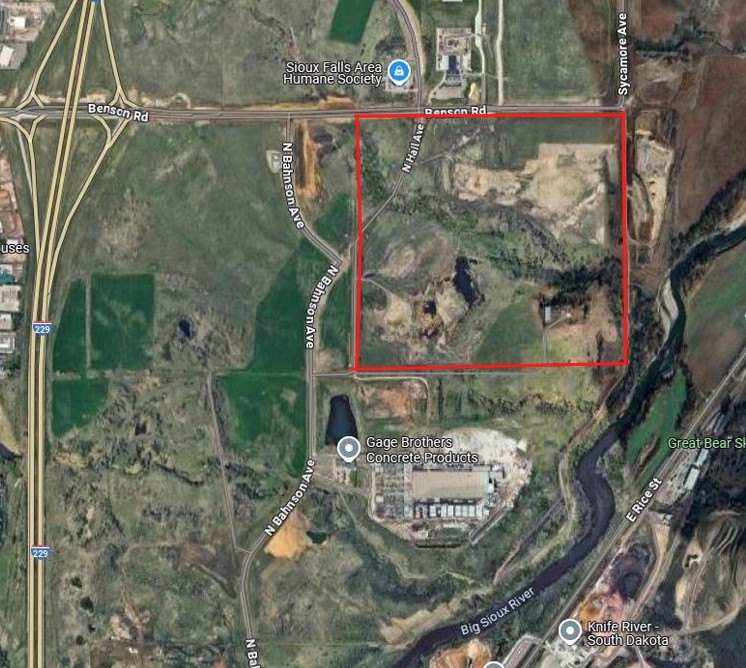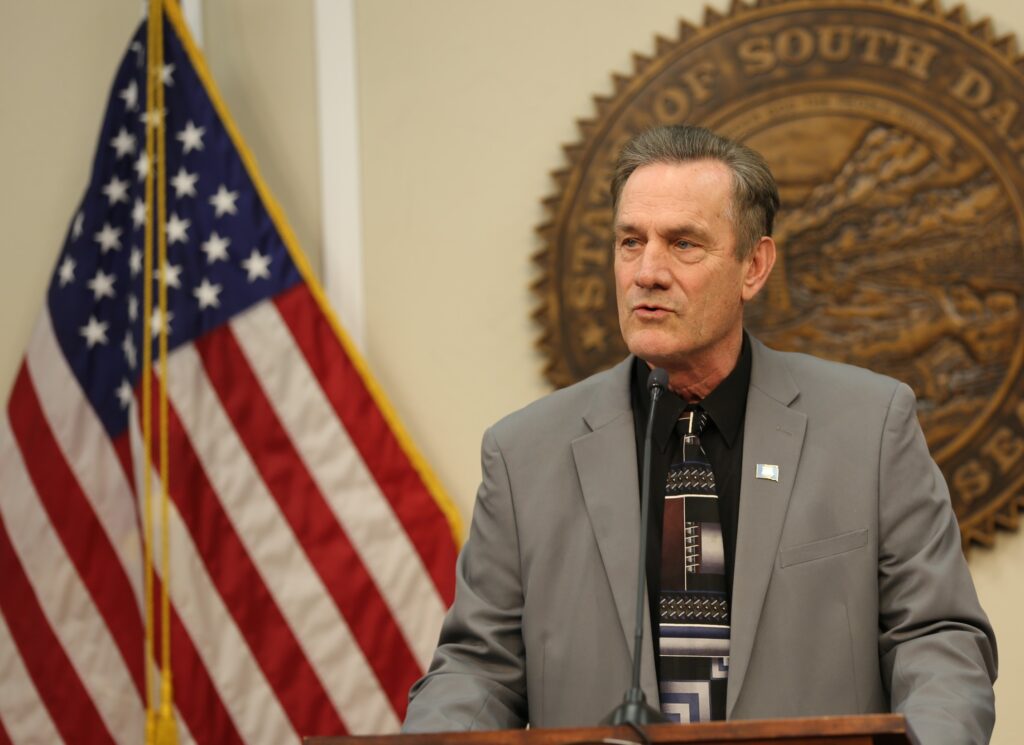South Dakota Gov. Larry Rhoden speaks to reporters during a press conference on March 31, 2025, at the state Capitol in Pierre. (Joshua Haiar/South Dakota Searchlight)
Several South Dakota lawmakers expressed doubts Wednesday that Gov. Larry Rhoden would change any minds with his pledge to create a Correctional Rehabilitation Task Force “following the passage” of his prison construction plan next week.
“No. Not at all,” said House Assistant Majority Leader Marty Overweg, R-New Holland. “I think most people are pretty dug in right now.”
A special session Tuesday at the Capitol in Pierre will be the culmination of a years-long effort to replace the oldest parts of the Sioux Falls penitentiary, which predates statehood.
After a proposal from Rhoden’s predecessor, Kristi Noem, to build in rural Lincoln County bogged down in local opposition, litigation and legislative concerns about the $825 million price tag, Rhoden appointed a Project Prison Reset task force to start over.
The group has since endorsed a new site on vacant land in northeast Sioux Falls and a lower price of $650 million for a 1,500-bed facility. The governor has said there’s enough money from the budget adopted last winter and a prison construction fund — which legislators have been filling for several years — to build the prison without debt.
Some opponents have expressed concerns that the state isn’t doing enough to keep people out of prison or prevent released inmates from reoffending.
In a news release Wednesday, Rhoden said if legislators approve the prison plan, “the next task is to expand our rehabilitative programming — that’s where this task force comes in.”
The news release said the task force would assess programming needs for inmates, options for faith-based and Native American-focused programs, and best practices for re-entry models. It would also make recommendations on how to best use the expanded space of the new prison.
Lt. Gov. Tony Venhuizen would lead the group, but no names were provided for other members. The news release said the roster would include legislators from both parties and chambers, plus a cross-section of experts in behavioral health, addiction counseling, correctional rehabilitative services and a tribal representative.
Overweg said he has not decided how he will vote. He is unconvinced that prison construction contractors won’t return for more money later after the $650 million cap has been reached.
Senate Majority Whip Kevin Jensen, R-Canton, is co-chairing a legislative task force on incarceration rates and recidivism this summer and has declared himself a “hard no” on the prison bill. He called Rhoden’s announcement overdue and poorly timed, making it appear like a play to garner more votes.
“I’m wondering if it might backfire,” Jensen said.

Jensen also called attention to the language in Rhoden’s press release, which said the task force would be created “following the passage and signing of the draft legislation for the new prison.”
South Dakota Searchlight sought clarity from the governor’s office about whether the creation of the task force is contingent on the passage of the prison plan. Spokeswoman Josie Harms responded in writing: “The Correctional Rehabilitation Task Force will be established following the passage and signing of the draft legislation for the new prison. The new prison will significantly increase space for rehabilitative programming, warranting the need for this task force.” She did not immediately respond to follow-ups.
House Minority Whip Kadyn Wittman, D-Sioux Falls, also serves on the summer task force. She said another task force making recommendations is not what the state needs.
“We have the data, we know what the problems are,” she said.
Wittman declined to say how she will vote on the prison proposal but stressed the poor condition of the penitentiary.
“Our current facility is not fit for human habitation,” Wittman said. “Nobody wants to fund a new prison less than me, but we have a constitutional and moral obligation to not have people live in squalor.”
The prison plan will need two-thirds majority support in the House and Senate, due to a state constitutional provision requiring the higher threshold for bills appropriating money.


